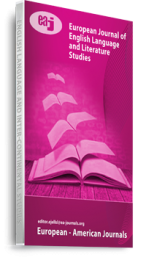Polygamy in Africa has being in existence before the advent of religion, western education and colonization. Once upon a time, polygamy had numerous advantages, so much so that the benefits superseded the disadvantages. But this is not the case today. Over the years, scholars from different fields of knowledge have contributed to the discourse of polygamy, while trying to investigate its necessity in the lives of the each individual in the family. While most were against it, few were in support of it. Bâ explores the problems of polygamy, patriarchy and female oppression in the context of African and Western cultures. She critiques polygamy by exploring its cons in the lives of women. This essay looks at the contribution imaginative literature has to offer to this discourse. Hence, this essay examines the portrayal of polygamy as it relates to female subjectivity in Mariama Ba’s So Long a Letter; especially how religion and society contributes to the oppression of women and children in a polygamous relationship.
Citation: Kehinde, Kemi Rebecca (2022) Female Subjectivity: A Re-reading of Mariama Ba’s So Long a Letter, European Journal of English Language and Literature Studies, Vol.10, No.5, pp. 50-55

